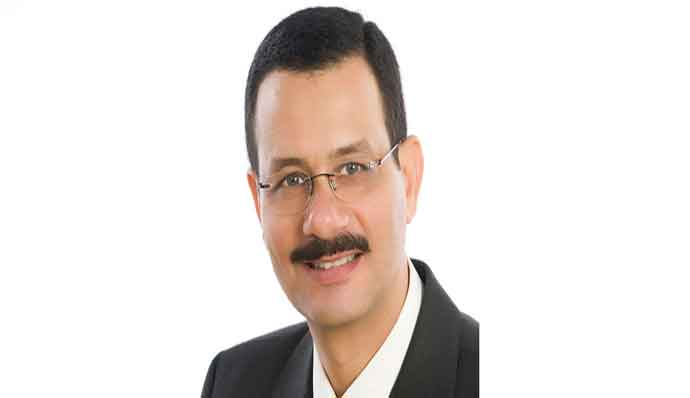The idea of establishing the Suez Canal economic zone came in 1998; a number of land parcels were allocated for Egyptian investors at the northwest of Suez Canal, however they did not have enough experience in managing these lands. In 2002, law 83 was issued in order to establish the economic zone at the northwest side, this economic zone started to operate in 2003; it is actually responsible for developing 20 kilometre along Ain Sokna.
In 2015 another law was issued, Law 27, which entitled some changes in Law 83. The Suez economic zone is currently responsible for developing 461 kilometre, in addition to 6 ports, which were assigned under the authority of the Economic Zone. The zone is also responsible for attracting more investment projects to establish more industrial and agriculture projects that can compete internationally and increase Egypt’s shares in global trade, create more job opportunities and increase Egypt’s GDP, within this framework, Middle East Observer interviewed Dr Ahmed Darwish to dig deeper into means to achieve such targets…
Can you tell us more about how you were assigned this position?
President Abdel Fattah El-Sisi is the one who appointed me to this position “Chairman of general authority for Suez Canal”. This is actually a huge responsibility especially at this critical stage the Egyptian economy is passing through. It is a significant challenge…but Egypt will prevail sooner than expected.
Recently you declared that the general authority for Suez Canal will cooperate with significant economic investors, can you tell us more about who would they be?
We are currently responsible for developing 461 kilometre, divided to four main zones ,East Port Said, West Kantara, East Ismailia, Ein Sokhna; each area has its distinctive nature with 6 main ports. As for the infrastructure, the major plan is to apply necessary modern techniques to help attract more investors’ attraction. Furthermore, there are zero custom duties; all these procedures will facilitate traditional regulations to maintain a successful yet flourished the Suez Canal Zone.
How far can the Suez Canal project contribute in boosting GNP? Are there any indicators related to this issue?
Such indicators, depend on several factors, one of which is the magnitude of investments and job opportunities; such factors are key to achieving increased growth rates.
Do you think that Egypt’s bureaucratic laws are obstacles before accomplishing the needed work at such critical zone?
Suez Canal is under the supervision of all Egyptian laws, however we are very keen to facilitate all the technical procedures, in order to grab more companies and more investments. The idea of establishing companies in Egypt, should depend on one person who, in turn, becomes responsible for accomplishing all the needed procedures during the company’s establishment and prior, to make sure that all licenses and authorisations are implemented smoothly. This process is adopted in order to eliminate bureaucracy. Furthermore, the general authority of Suez Canal economic zone has its own board of directors, which is considered a small ministry council that can accomplish the tasks of nearly all the other ministries, except those of the Ministry of Interior Affairs, Ministry of Foreign Affairs, Ministry of Defence and Ministry of Justice.
There are high expectations regarding the Suez Canal project, can you tell us more about the size of financing opportunities and projected investments?
I would say that each area has its own nature, hence the financing of each area is very distinctive; for instance East Port Said had a different financing approach from Ain Sokhna, as ports has a different financing rates as well. There is no specific estimate for financing, however there are several alternatives and financing options, which indicates that the Suez Canal is a trustworthy project.
As for the expected investments, I do not like to talk about what I expect. I would rather talk about what is already there, than just raise assumptions. Several investors and major companies have offered their cards to invest in the zone, among which is a MOU with Barcelona Group. All offers are being considered to measure how far offered industries would be useful and appropriate for the zone’s development.
Moreover, a Letter of Intent (LOI) was signed with the Singaporean High Flex Co., under which a $500m desalination station would be established with a capacity of 150,000 cubic meter water and 457 MW electricity.
Amid the current economic status, we are racing ahead with time, when do you think we can start reaping the sow of the Suez Canal project? What about the new job opportunities?
Each project has a definitive schedule, based on its nature and investors’ relevant studies. As for the job opportunities, it differs from one zone to another, with some announced within 6 months -to provide infrastructure- and others within 2-3 years.
We are actually planning to set-up training centres that qualify young men to work for those foreign companies investing in the zone. We work to ensure their recruitment once they complete training sessions.
Would the Suez Canal Development Axis really improve Egypt’s ranking in the global Competitiveness Index?
There is no doubt that eliminating bureaucracy and developing a proper working environment will be translated into more investments. It will also boost, along with administrative and economic reforms, GDP and exported goods. As a result, Egypt will definitely score higher Competitiveness climates.
Finally, what do you have to say to lift the Egyptians’ spirits, especially the youth; will we see the Suez Canal a new “Singapore” that contributes to boosting economic growth and national income?
The youth are the hope for a better future, together we can change reality. We do have all success factors- namely expertise, capabilities and political support. I do believe that the Egyptians can achieve remarkable change; after the great accomplishment achieved in Suez Canal, we are able to present a model that is to be followed all over the world.


